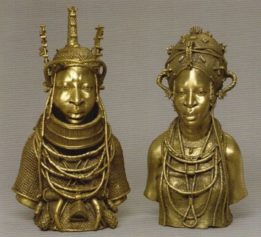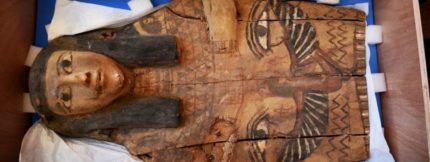Merton D. Simpson, an artist who became a trailblazing collector and gallery owner specializing in African art, died on Saturday in Manhattan. He was 84.
Mr. Simpson had had several strokes and suffered from a number of prolonged illnesses, including diabetes and dementia, said his son Merton Jr. and Alaina Simone, director of the Merton D. Simpson Gallery, in confirming his death.
Mr. Simpson’s work as a painter was largely in the Abstract Expressionist mode. It grew more political after he joined the Spiral group, a collective of black artists founded in 1963 by Romare Bearden, Hale Woodruff and others, who met to discuss the role of black artists in the art world and, given the growing civil rights movement, the larger world as well.
Influenced by Bearden’s collages and the Spiral discussions, Mr. Simpson, after witnessing a standoff between Harlem residents and the police in 1964, produced a series he called “Confrontations,” abstract renderings of masklike faces, white and black, seemingly in hostile opposition.
Mr. Simpson began collecting African and tribal art in the late 1940s. His interest grew through the next decade, spurred by the influence of African sculpture on the paintings of Picasso, Miró and others.
“I was so taken with them, with the forms, you know,” he said in a 1968 oral history interview for the Smithsonian Institution’s Archives of American Art about the figures he had seen in the collections of Mr. Woodruff (who had been his teacher), Paul Robeson and others. “People talked about Picasso, Miró, and I used to say, ‘What about African sculpture?,’ which these people sort of got this idea from.”
He began dealing in art in the early 1950s to support his painting and to help his family, at first working out of a studio apartment and later from a gallery in Manhattan. (The Merton D. Simpson Gallery is now at 38 West 28th Street.) Over decades of traveling in Africa and Europe, Mr. Simpson established a reputation for taste and expertise that many aficionados in the field consider unmatched.
Read more: NYTimes


